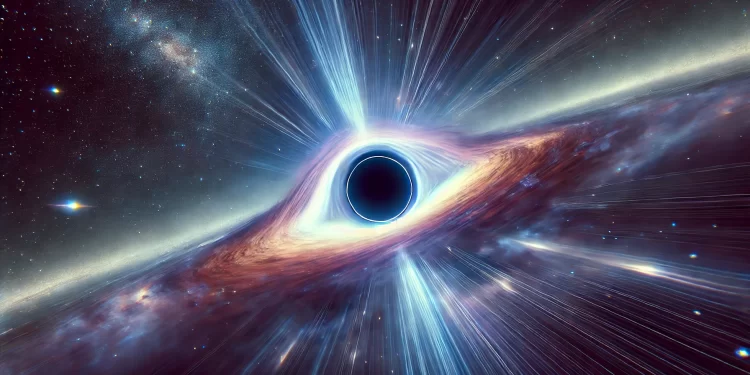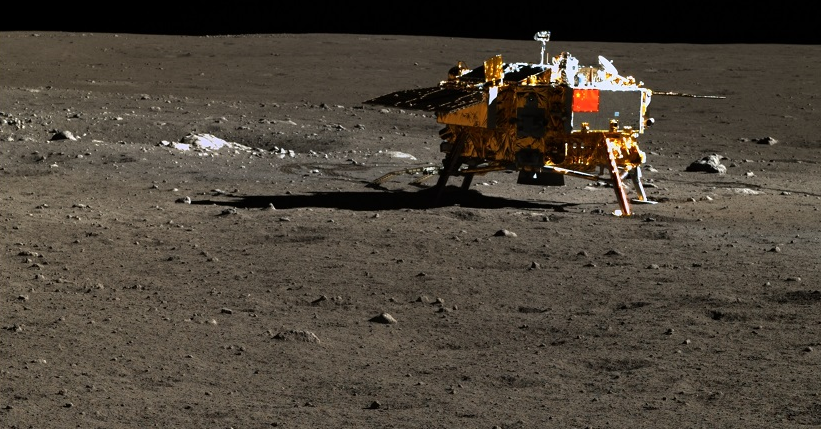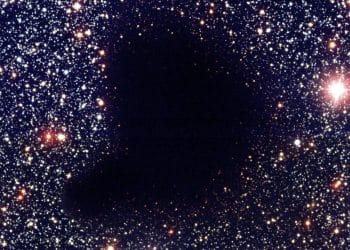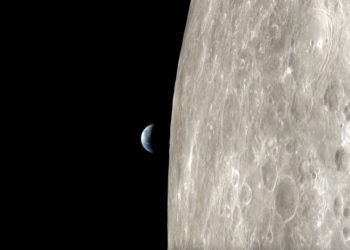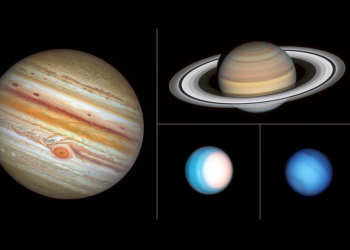In the vast expanses of our universe, where the improbable becomes possible, mini black holes, reminiscent of kilometer-sized asteroids yet possessing a mass of half a billion tons, present a paradox that challenges our understanding of cosmic phenomena. These enigmatic entities, with event horizons as minuscule as a proton, defy the usual expectations of astronomical accretion due to their unique quantum mechanical characteristics.
Recently, Professor Avi Loeb introduced a groundbreaking perspective in his latest research, revealing that these primordial black holes, potentially formed mere moments after the Big Bang, could play a pivotal role in the cosmic mass equation, possibly accounting for the elusive dark matter that dominates our universe’s mass by a factor of six compared to ordinary matter. This revelation is detailed in a new paper Professor Loeb discussed, where he challenges previous assumptions about black hole accretion.
Traditional astrophysical models, which treated cosmic matter as a continuous fluid, significantly overestimated how much matter these black holes could accumulate. Professor Loeb’s quantum mechanical approach illustrates a reduced likelihood of such black holes attracting matter. He explains how a black hole with a mass four billion tons might interact with subatomic particles: while it could potentially capture a proton, the chances of engulfing an electron are minimal due to the electron’s expansive wave function. This interaction results in a temporary electric charge for the black hole, creating what Professor Loeb refers to as a “black hole atom.”
This black hole atom exhibits a stronger binding energy than a typical hydrogen atom, with gravitational forces enhancing the electron’s attachment to the black hole, yet it possesses a half-life only in the order of picoseconds. Despite this fleeting existence, the accretion of an electron-proton pair over the universe’s lifespan (13.8 billion years) would still result in a negligible mass increase to the black hole.
Fifty years after Stephen Hawking’s prediction that billion-ton black holes would emit significant radiation, Professor Loeb’s findings suggest that the energy output from such black holes would likely inhibit further matter accretion. His insights build upon foundational theories from the likes of esteemed physicists such as John Wheeler and Jacob Bekenstein, whose early conversations and theoretical advancements set the stage for these modern explorations.
In an intriguing exchange of ideas, Professor Paul Davies, a notable figure in quantum field theory, reached out to Professor Loeb. He recounted a historical discussion with Wheeler, revealing that these concepts had been contemplated decades prior, yet remained undocumented until now. This correspondence underscores the continuous evolution of scientific thought and the persistent curiosity that drives it forward.
Despite some skepticism from the moderators at the arXiv online server, who have hesitated to publish his concise findings due to perceived narrow interest, Professor Loeb remains undeterred. Echoing the sentiment of Richard Feynman, he relishes in the joy of discovery, a sentiment that resonates through the scientific community regardless of the era or the gatekeepers of information. Professor Loeb’s work not only contributes to our understanding of black holes but also invites us to reconsider how we perceive the most fundamental elements of our universe. His research encourages us to think beyond traditional boundaries and to imagine the myriad possibilities that space holds. As we continue to explore these cosmic frontiers, it becomes increasingly clear that the universe is a place of endless mysteries waiting to be unlocked.



